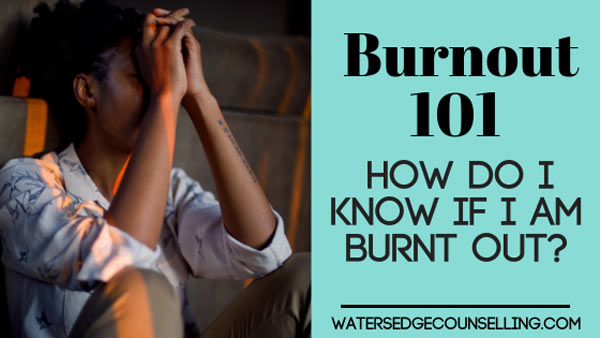
Burn out. The word conjures up a number of associations such as the devastating images we see during a bush fire season; the blackened, desolate lifeless shell that was someone’s home. Once a secure, safe refuge from the world, a place to rest and rejuvenate, now empty, lifeless, silent. As this image so powerfully suggests, when burn out takes its course, we feel exposed, vulnerable, lifeless and powerless.
What are signs that you could be suffering from burnout?
Burn out occurs when we fail to acknowledge and take seriously, the messages that our body sends indicating we are not doing so well. Consider the homeowner who builds a beautiful house in a fire prone area, yet fails to acknowledge and put into place reasonable measures to ensure that their home is ‘fire ready’. ‘It will never happen to me’ is their denial, a denial that will reap serious and potentially life crippling consequences.
Similarly, the person whose daily life is a constant pressure to perform, threatening to overwhelm them if they stop so that they press on ignoring their bodies warning signs, will eventually burn out. Constant lethargy to the point of exhaustion, the refusal to stop and rest or take time off, feeling constantly stressed, being ‘time poor’, distracted with no time to spend with family and close friends, experiencing ‘odd’ negative physical symptoms and/or panic attacks for no apparent reason, not paying attention to diet or exercise, always irritable and frustrated, refusal to have a check-up with their doctor are all signs of oncoming burnout. Sadly, it is the very denial that these things are happening that make preventative measures impossible.
What can be the consequences of burnout?
Physically and mentally you have compromised yourself; routine tasks are laborious, decision-making takes effort, distracted and irritated by the constant demands you become more emotional, teary and anxious or frustrated and resentful; you are inefficient, making mistakes that you would normally never miss. The consequences can be far-reaching due to the decreasing lack of awareness that we have for the people around us and the inner dialogue that becomes resentful, blaming and victim-orientated.
Here are some of the more obvious consequences of burn out:
Physical and/or mental health crisis including severe depression and/or anxiety, paranoid thinking and behaviour
Loss of employment as a result of the physical and/or mental health crisis and poor performance
Relationship and family breakdown due to the lack of attention to our partner and our family and the negative attitude we bring
Addictive behaviours such as substance abuse, junk food and/or pornography.
What are possible causes of burnout?
Burn out can happen to anyone however there are certain personality traits that make a person more vulnerable. Ironically, it is the people we regard to be strongest, that will push themselves to perform in spite of the presence of long-term stress that threatens to overwhelm them. The stress may well be a series of negative circumstances such as a bereavement, financial insecurity, a family crisis, a life transition, changes at work are just a few examples. When we continue to experience significant stress over a long period of time (from one source or a number of sources), yet believe that ‘I must carry on not matter what’, our ability to function efficiently is diminished.
People who identify as being good provider’s or helpers are frequently wired to work over and above what they are able to give. They will ‘let go’ of their own needs for good health and wellbeing to meet the needs of others and in so doing become burned out.
High achievers and people with perfectionist tendencies will rarely acknowledge their own need for rest and nourishment due to the compulsion they experience to deliver outstanding work.
For some of us, burn out happens because our life circumstances pressure us to keep doing; the man who works 3 separate jobs and is rarely home, the single mum who works night and takes care of her children in the day, the man in his 50’s who is trying to keep up with new technology and changing work environment but struggles to perform at the level demanded. Any of these scenarios or others like them can bring us to burn out.
For more Burnout 101, stay tuned for next week’s blog: ‘How to recover from burn out’.
Are you becoming burnt out? Do you struggle to rest? Here’s what you need to do: Contact Colleen on 0434 337 245 or Duncan on 0434 331 243 for a FREE 10 minute consultation on how we can best help you or book online.
Leave a Reply